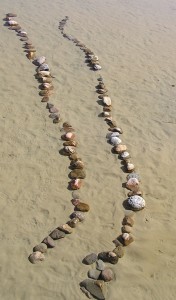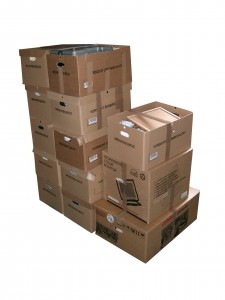 As I sit alone in the Newark airport, halfway through my three hour layover before I fly directly to Peru, I have a lot of time to think (and one of those thoughts is that I could have just come here to learn Spanish from the plethora of its speakers who are currently having lunch all around me).
As I sit alone in the Newark airport, halfway through my three hour layover before I fly directly to Peru, I have a lot of time to think (and one of those thoughts is that I could have just come here to learn Spanish from the plethora of its speakers who are currently having lunch all around me).
But, more strongly than that, I think about the lines of safety we draw for ourselves. They are different for everyone—some willingly jump out of planes so long as they have a working parachute, while others enjoy shopping at big box stores so long as they don’t have to drive over county lines.
Wherever you scrape them out in the sand, the existence of those imaginary boundaries helps you to feel safe, while you take whatever small or large risks you think you need for a robust life.
I have never been particular attached to the phrase “YOLO” (You Only Live Once), perhaps because it typically comes attached to drunken wuhoos and other general thoughtlessness, but most people use it frequently these days. It’s an excuse to take big-time gambles. You only live once, so why not, right?
But the concept of YOLO could just as easily serve as a caution against such risk. You only live once, so why wouldn’t you protect that fragile opportunity, since you don’t get a do-over? (Well, as far as we know, anyway)
When I tell people that I am heading to Lima, Peru to study Spanish for two weeks people usually respond in one of two ways. “Wow, that’s amazing!” and “Please be careful.” Usually, they say both.
It’s then that I can almost see the internal struggle going on in their heads. It sounds like the path to an adventure of a lifetime—one that could be filled with so many potholes to disaster. Especially when they hear that I am going alone.
But that wasn’t the original plan. Actually, scratch that. It was the original plan. I have long been dreaming of solidifying my university Spanish by submerging myself into a country steeped in the language and culture I fell in love with in my early twenties. There is something about the rhythm and flow of Spanish words that just connected to the erratic beating of my own heart and made smooth waves out of the erratic waters. I have never been particularly good at speaking it, but I always believed in the possibility of reversing the language’s unrequited love for my tongue. Translation: I want to be fluent.
I came up with the Peru Plan almost two years ago and was planning on escaping down there in May of 2012. But then it happened. “It” being love. Puke. I changed my plans to include a later date, when we could go together.
We wove our stories together for a while, before tearing the threads apart. At this point, the plane tickets were already booked. He cancelled his without hesitation and encouraged me to do the same, citing worry for my safety.
I suppose it did cross my mind that I could postpone, find another time to go with a friend, which would make everything so much easier. To have a travel companion, someone who could get excited with me about heading into an unknown land; someone who could help navigate the foreign roads and collaborate on sign translations; someone who, years later, could laugh with me as we remember that time when our words weren’t quite right and landed us with barbequed guinea pig instead of chicken. Someone to share in the risk and add to the safety.
But, I thought, to hell with it (sorry, Mom). YOLO, and all that. If I didn’t go through with the trip as planned (with of course, modifications for my now party of one), who knows when I would get the opportunity to go again. Not only was it something I made a New Years resolution about, but it was on my freaking bucket list. And no failed relationship was going to set-up a roadblock to reaching my goals.
So, I made all the final arrangements—airport transfers, additional flight to Cusco, hotel in the mountains, excursion to Machu Picchu—and set my sights on the original dream.
My parents expressed concern. My friends spurred me on. And though my resolve never really waivered, my brain did let in moments of doubt. Yet, I couldn’t help but recall the words of a famous poem that have been stuck in my head for the past few months: “What are you going to do with this one wild and precious life?”
I have asked myself that one question repeatedly, trying to encourage the constant reminder that 1) it is my decision (how freaking great is that?!), and 2) life holds within it the dichotomy of being both wild and precious—worth living to the height of our ability and protecting to the best of it. One ought to, in fact, observe both meanings of YOLO. The why and the why not.
Perhaps Peru is not the safest destination on the planet (although it is certainly not the most dangerous). But I will be safe. Toronto is different, yes, but from living there for many years, I have learned to carefully traverse a large urban landscape. And our mayor does crack in his drunken stupors, so I at least have some bad-ass points, right?
But I will also be bold. I will seek out new experiences, friends and, of course, food (they do actually serve guinea pig there).
I will draw my lines in the sand, weigh adventure against common sense and find my balance between heart and head.
If you want to read about my Peru adventures, I plan on including some highlights here.
Thanks for reading. Pura vida.

